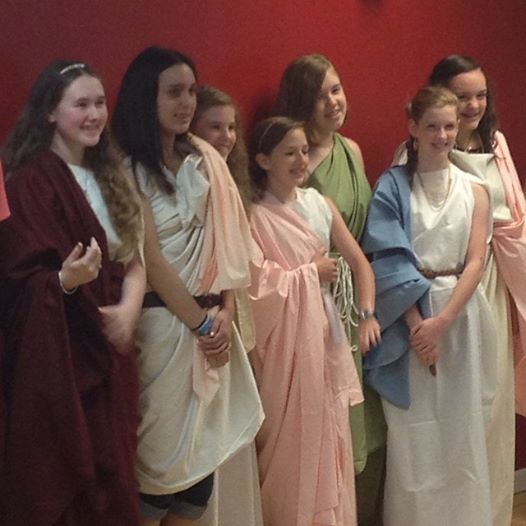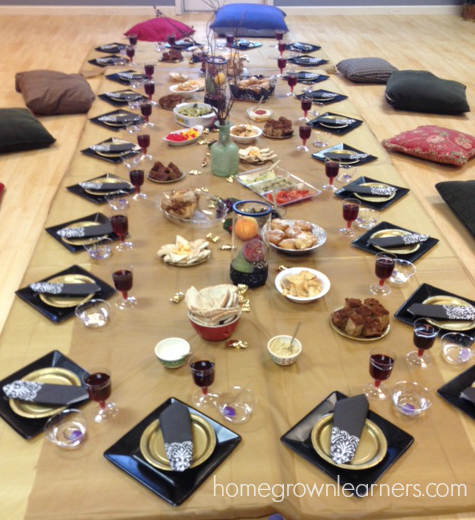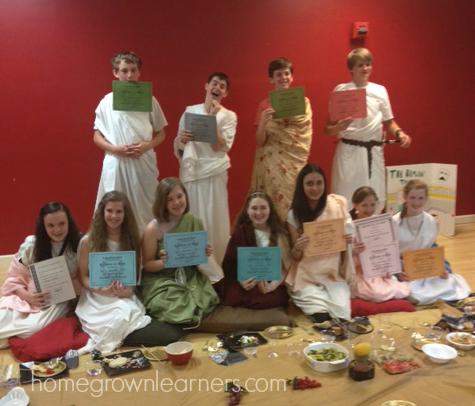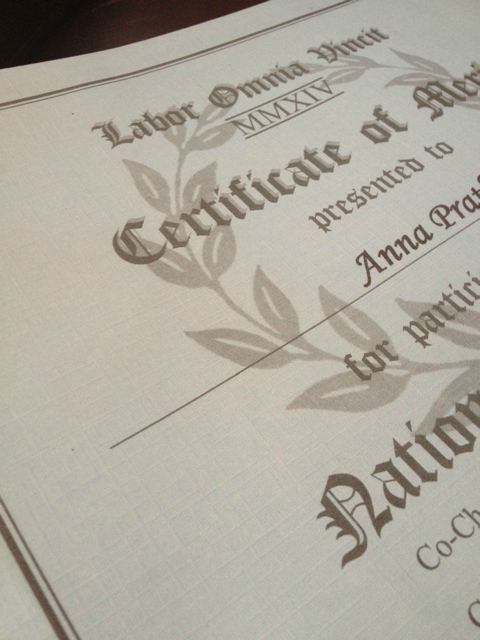
"Latin is a dead language."
How many times have you heard this argument about why NOT to study Latin?
Latin is very much ALIVE and well, and I am so thankful we have the opportunity to be scholars of this intriguing language.
If you're like me I had always toyed with the idea of Latin being an integral part of our homeschool but I just didn't know where to start. I wasn't sure how to learn Latin.
Truthfully, it seemed daunting and I wondered if it was REALLY worth the effort.
Like most things in life, I'm so glad we just jumped into the study of Latin with both feet, because after one year I can see both of my children reaping enormous rewards!
*This post contains affiliate links.
Why Latin
The argument that Latin is a "dead language" is tired and uninformed. I could point you to numerous articles that ennumerate the benefits of learning Latin, but for now I will just point out a few (thanks to an article by Kathy Sheppard found on the Classical Conversations website)
Latin helps with mental acuity.
Latin helps students become better spellers.
Latin helps students with their study of English literature.
Latin helps students become great speakers.
The study of Latin decreases the effort needed in other subjects by 50 percent.
For my oldest child in particular, Latin is developing an academic discipline. She sits for at least an hour each day working on intense Latin vocabulary, translation, and declensions. Her brain has to think HARD, and she is mentally exhausted after that hour.
I have seen some of her finest work during these times.
With Latin, as in much of life, one has to buckle down and do the hard things. It's not always fun, but it's a certainty that it becomes MORE fun after accomplishment and mastery.
How We are Learning Latin
At the very youngest age children are learning basicl Latin endings and conjugations in their Classical Conversations memory work. Grant has a lot of Latin committed to memory, but doesn't know quite what it means yet.
That's ok. In just a few years he will retrieve all of those endings and begin using them in a formal study of Latin.
{We tried a formal study of Latin when my daughter was 4th grade and she just wasn't ready. I'm glad we just play with words and memorize at a young age and wait until the middle grades for formal study.}
We are also working through a wonderful book, Red Hot Root Words, that builds vocabulary with Latin and Greek. This book is great for children and adults alike.
For Anna (who is 7th grade and a part of the Challenge A program), she took the plunge and started with Henle Latin. They have worked through a little more than the first third of the book this year. It hasn't been easy. In fact, there have been many moans and groans about Latin.
But, when it comes down to it (as it does with anything really worth learning) the effort spent has paid off and the pride in a job well done has been tremendous.
The important thing to know is this: You don't have to be a Latin expert to teach your child Latin. Simply model HOW TO LEARN. We have been learning Latin together, and with the aid of other classmates and moms and also Anna's CC tutor it's coming together.
This summer we will run back through the first third of the book using Memoria Press Henle Latin study guides. I have heard that repeated exposure builds mastery and confidence.
Learning Latin with friends has been fun. I would recommend learning Latin with a group of people to keep you motivated and ACCOUNTABLE. Henle Latin is intense and a little bit of peer pressure has kept my daughter motivated.

Latin Day & The National Latin Exam
As our school year draws to a close, the Challenge students had a Latin day. The students dressed in Roman costume, had a Latin lunch, and each student presented about a different aspect of Roman life.
The feast and beautiful table that awaited the students:

After all of the feasting (I love that parents and siblings were all an integral part of this. We have, after all, been learning together!) and presentations, the students were given certificates of the completion of the National Latin Exam.


To sit and listen to teenagers actively discussing Roman architecture, literature, music, and other topics made me immesely thankful we homeschool. I'm not sure we could get this DEPTH of exposure anywhere else. Our children are exploring a subject in intimate detail, and they are discovering all of those COOL connections between Latin and science, math, art, music, literature, and so much more.
I drove home from Latin Day thinking how thankful I am for the study of Latin and how PROUD I am of my daughter. Her foundation is being developed. Latin will help her in so many areas.
Do you include Latin in your homeschool?
Check out our FAVORITE Latin game, Race to the Colosseum:
